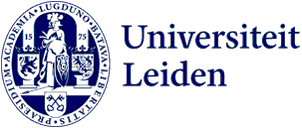Lecture
Understanding human migrations requires a long-term perspective
- Date
- Tuesday 5 December 2023
- Time
- Address
- online
Leiden is the city of archeology par excellence. The very first Professor in Archaeology, Caspar Reuvens, was from Leiden! And now, 200 years later, Leiden is home to both the internationally leading Faculty of Archeology and the renowned National Museum of Antiquities.
Following the success of the 2022 Leidse Stellingen lecture series, the two heritage centers are joining forces again. Twice a month there is an online lecture by one of our renowned researchers. What drives them in their work? With provocative statements and engaging stories, they invite you into the world of the archaeologist.
Lecture December 5: Dr. Jason Laffoon
Topic: Understanding human migrations requires a long-term perspective
Current debates on the topic of human migration are often based on unfounded assumptions about past migration rates. Although international migration rates appear to be increasing, they are based on historical data and observations over the past few centuries. While human migrations have been happening for tens of thousands of years, if not longer. Understanding these migration patterns requires us to take a long-term perspective to assess how current trends compare with migration rates that come not only from the recent past, but also from prehistory.
Bioarchaeological archives
Relatively recent developments in archaeological sciences allow scientists to obtain more detailed information about the lives of people in the past. One of the most important of these archaeological scientific revolutions is the development and widespread application of isotope and DNA analyses. These have shed new light on past migration patterns. They provide powerful evidence that migration was much more common than previously thought. These new insights undermine the common assumption that migrations are recent phenomena. Rather, they suggest that past societies have been able to effectively manage large migration flows.
